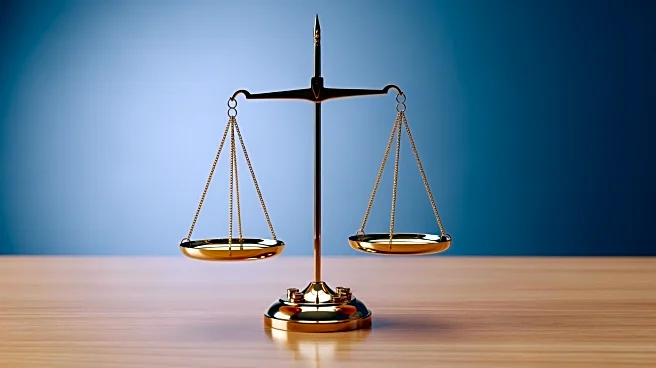What's Happening?
President Donald Trump has announced his intention to sue the British Broadcasting Corporation (BBC) for $1 billion. The lawsuit stems from allegations that the BBC edited his January 6th speech in a manner
that Trump claims was intended to interfere with the presidential election. This development follows the resignation of two top executives from the BBC amid increasing scrutiny and pressure on the organization. The controversy centers around the BBC's coverage and editing practices, which Trump argues misrepresented his statements and potentially influenced public perception during a critical electoral period.
Why It's Important?
The potential lawsuit by President Trump against the BBC highlights ongoing tensions between media organizations and political figures, particularly concerning the portrayal and interpretation of political events. If pursued, this legal action could have significant implications for international media relations and the standards of journalistic integrity. The case underscores the challenges media outlets face in maintaining objectivity and the potential repercussions of perceived bias. For the BBC, a lawsuit of this magnitude could impact its financial stability and reputation, while also prompting broader discussions about media accountability and freedom of the press.
What's Next?
As the situation develops, the BBC may need to prepare a legal defense to counter the allegations made by President Trump. The case could lead to increased scrutiny of media practices and potentially influence future regulatory measures regarding media coverage of political events. Stakeholders, including media watchdogs and political analysts, will likely monitor the proceedings closely, as the outcome could set precedents for how media organizations handle politically sensitive content. Additionally, the lawsuit may prompt other political figures to reassess their interactions with media outlets, potentially leading to changes in how political communications are managed.









